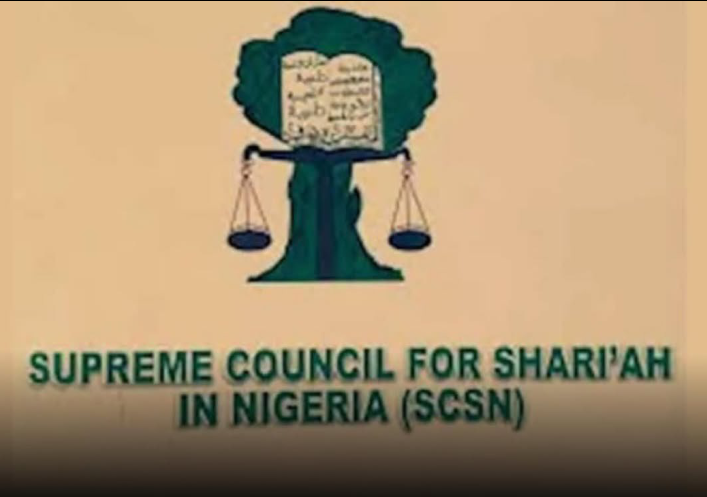
SCSN Blasts U.S. Over Nigeria’s Blacklisting, Calls It a One-Sided Judgment Fueled by Western Bias

The Supreme Council for Sharia in Nigeria (SCSN), Kaduna State Chapter, has strongly condemned the decision of the United States government to label Nigeria as a “Country of Particular Concern,” describing the move as biased, misleading, and insensitive to the complex realities of the nation’s security situation. The Council, in a statement signed by its Secretary, Engr. Hassan Abdul Rahman, argued that the designation was politically motivated and failed to capture the multi-layered causes of insecurity affecting both Muslims and Christians across the country.
Engr. Abdul Rahman expressed disappointment that the U.S. government, under the Trump administration, would issue such a declaration without adequately engaging with local realities or consulting diverse stakeholders who could have offered a more balanced perspective. According to him, the categorization paints Nigeria in a distorted light and fuels dangerous narratives that could worsen religious mistrust and division. “The Council is not happy with this development on allegations regarding Christian genocide in Nigeria. The U.S. should have sought a balanced perspective before reaching conclusions,” he said, emphasizing that insecurity in Nigeria is not a faith-based war but a complex web of economic hardship, political tension, and ethnic rivalry.
He stressed that the claim of systematic persecution of Christians in Nigeria is misleading, noting that data and numerous reports also reveal that Muslims have been frequent victims of violence in equal or greater numbers. “Our people in Zamfara, Katsina, and Sokoto have suffered severe attacks, with hundreds of lives lost. Are these not human beings too? When Muslims are killed, it doesn’t make international headlines. The West chooses what to see and what to ignore,” he lamented. Abdul Rahman accused the West of selective outrage, stating that it is troubling that Western nations and international media outlets amplify incidents involving Christian victims while downplaying or completely ignoring similar atrocities committed against Muslims in Nigeria and elsewhere.
He argued that this pattern of selective concern has become a global problem, one that reinforces negative stereotypes and deepens the wedge between faith communities. “Wherever Muslims are killed, it doesn’t concern the West. This bias breeds distrust and undermines global peace. The same moral energy used in defending one group should be applied to all, regardless of religion,” he added, warning that such biased labeling could embolden extremist elements and undermine efforts by Nigerian authorities to promote coexistence.
The SCSN also took aim at the Christian Association of Nigeria (CAN), accusing it of fueling narratives that make the country appear like a religious battleground. According to Abdul Rahman, CAN’s statements and lobbying efforts abroad often portray Muslims as aggressors and Christians as perpetual victims, a portrayal he described as “half-truths” that complicate peacebuilding. “We believe CAN is not helping the situation. Their constant exaggeration and one-sided reports give the world the wrong impression about Nigeria. When you tell foreigners that your government or fellow citizens are committing genocide, you invite foreign interference,” he said.
He further warned that Nigeria’s unity was too fragile to withstand the pressures of external manipulation. In his words, “If Nigeria breaks apart, there will be no safe space for anyone. Both Muslims and Christians will suffer the consequences. This is why we must be careful with the kind of stories we tell about ourselves.” The Council urged Nigerians to be vigilant against foreign agendas and to resist any attempt by outside forces to sow discord among religious communities.
Engr. Abdul Rahman maintained that the security challenges facing the country—from Boko Haram insurgency to banditry and communal clashes—are driven more by poverty, unemployment, corruption, and weak governance than by religious hatred. “It is unfair to simplify our crisis as persecution of Christians. The average Nigerian, regardless of religion, is struggling for survival. Hunger, unemployment, and insecurity are our common enemies. It is these conditions that give rise to criminality and violence,” he explained.
The SCSN’s reaction adds to the growing wave of criticism from several quarters in Nigeria following the U.S. decision, which many analysts have described as poorly informed. Religious and political commentators have noted that labeling Nigeria as a “Country of Particular Concern” could damage its international reputation, scare off investors, and increase diplomatic tension. Others have warned that such foreign designations, especially when based on partial narratives, can embolden local extremists who may exploit the tension for their gain.
Engr. Abdul Rahman, in his closing remarks, called on Nigerians to prioritize unity and peaceful coexistence over divisive foreign narratives. “Let us not allow foreign lies to divide us. Through understanding and cooperation, Nigeria can overcome its challenges. We must resolve our differences without inviting outsiders to destroy the only nation we have,” he urged. He emphasized that the solution to Nigeria’s crisis must come from within, through dialogue, justice, and mutual respect among all ethnic and religious groups.
The SCSN’s statement reflects a broader sentiment among many Nigerians who believe the country is often misunderstood by foreign powers that interpret every violent episode through a religious lens. Critics argue that while some attacks may have religious undertones, the majority are driven by economic desperation, competition for land, and failure of leadership at various levels. They caution that such oversimplifications by international observers can erode trust, inflame suspicion, and hinder ongoing reconciliation efforts.
Meanwhile, some political observers have called for the Nigerian government to engage diplomatically with the United States to clarify its position and provide data showing that the country’s violence is not targeted at any single religion. They say it is important for Nigeria to defend its image and demonstrate its commitment to protecting the rights and freedoms of all citizens.
For ordinary Nigerians, the SCSN’s call for unity resonates deeply in a country already stretched by hardship and disillusionment. Many citizens, weary of endless religious blame games, now believe that the real battle is not between Muslims and Christians but between the people and a system that has failed to provide security, equality, and prosperity.
As the debate over the U.S. designation continues, one thing remains clear: Nigeria’s path to peace and progress depends on the willingness of its people to look beyond the narratives of outsiders and confront their problems as one united nation. The Supreme Council for Sharia’s message stands as a reminder that foreign labels cannot define Nigeria’s destiny — only Nigerians themselves can.


